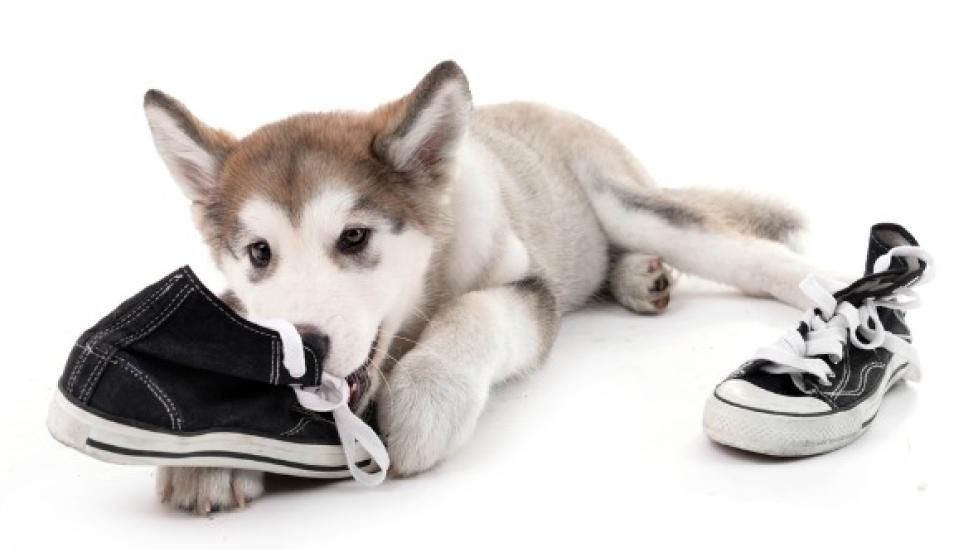As a devoted pet expert with a flair for writing engaging content on all things furry, I am here to shed light on the common yet frustrating issue of destructive behavior problems in our beloved canine companions. It’s crucial to understand that these behaviors are not just mere mischief but rather signs of underlying issues that need attention and guidance from both owners and professionals alike. Let’s delve into some of the most prevalent behavioral challenges faced by puppy parents and explore effective strategies to address them head-on.
Jumping: A Common Canine Greeting Gone Wrong
Puppies often greet us with enthusiasm by jumping up—it’s their way of saying hello. However, this seemingly innocent act can lead to discomfort or even injury if left unchecked. Here’s how you can redirect your pup’s exuberance:
1. Ignore the Behavior: When your dog jumps up, turn away and ignore him until he calms down. This helps teach him that jumping doesn’t get him what he wants (attention).
2. Set Boundaries: Make it clear when it’s okay to jump (like during playtime) and when it isn’t (when guests arrive). Consistent rules will help prevent confusion.
3. Teach Alternative Behaviors: Reward calm behavior like sitting politely instead of jumping. Use treats or praise to reinforce good manners.
4. Socialize Your Dog: Exposure to different people, places, and experiences can help reduce anxiety and excitement levels, which may decrease unwanted jumping.
Chewing: The Inevitable Teething Phase
Chewing is natural as puppies navigate through their teething phase; however, excessive chewing can cause damage around the home. To manage this behavior:
1. Provide Safe Alternatives: Stock up on chew toys designed specifically for dogs at various stages of development. Keep an ample supply within reach so there’s no temptation to chew on inappropriate items.
2. Monitor Accessibility: Ensure dangerous objects are out of reach or secured properly. Pups are curious creatures who might find themselves in trouble without proper supervision.
3. Stay Calm and Patient: Understand that chewing is temporary and part of normal growth. Remain consistent with training while being patient with your little chewer.
4. Exercise and Enrichment: Tire out your pup physically and mentally with regular walks, games, puzzles, and interactive toys. A tired dog is less likely to engage in destructive chewing.
Playbiting: Roughhousing Gone Too Far
Playful nips between humans and pets can be fun, but sometimes they can become too rough or painful. If you notice escalating playbites, consider the following steps:
1. Teach Soft Mouth Technique: During play sessions, gently push your finger into your dog’s mouth and reward him with a treat whenever he opens his jaw softly. Repeat this exercise daily.
2. Establish Clear Communication: Use verbal cues like “easy” or “gentle” to signal to your dog that his bite pressure needs adjustment. Reinforce positive responses immediately.
3. Adjust Play Style: Sometimes, we unintentionally encourage rough play because we enjoy it ourselves. Modify your play style to focus more on non-aggressive interaction.
4. Supervise Interactions: Watch closely when children or other animals interact with your puppy. Intervene promptly if play gets too intense.
Beyond the Basics: Seeking Professional Help
While many behavioral issues can be managed at home, some complex cases may require professional intervention. Certified animal behaviorists, trainers, or veterinarians experienced in behavior modification can provide personalized advice tailored to your dog’s specific needs. They may use techniques such as counterconditioning, desensitization, or even pharmacological interventions where necessary.
Remember, patience and consistency are key ingredients in managing any problematic behavior. By implementing these strategies alongside plenty of love and affection, you can foster a harmonious relationship with your four-legged friend while ensuring everyone’s safety and well-being.
